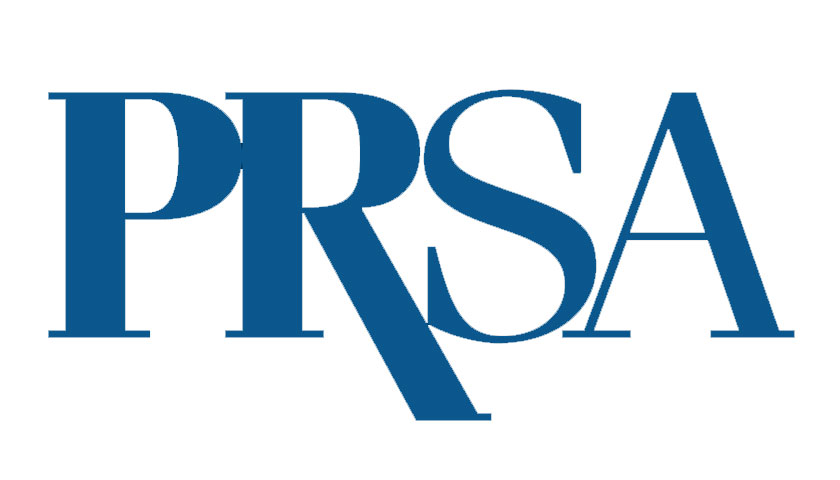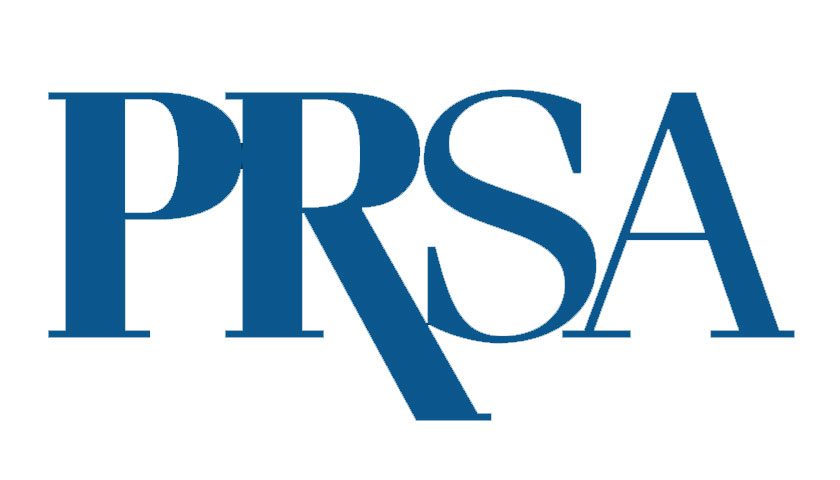Members of a national U.S.-based public relations professional association are demanding answers, amid failures by organizational leadership to reconcile ongoing assurances of positive financial stability, despite a recent history of management statements conflicting with tax filings, unexplained data flip-flops in “audited” financials, and violations of its own Ethics Code – including:
- A CEO whose abrupt departure in July 2019 was only announced the day after he vacated his office’s Wall Street headquarters in New York, with subsequent questions about inconsistencies ignored;
- A Chief Financial Officer who – for 10 months ongoing – has been allowed to report to himself as dual “Acting CEO” during a protracted executive search continuing to the present, which leadership claimed to its voting delegation in October 2019 has been delayed because not enough people are looking for new jobs;
- A half-million dollars in staff compensation raises paid in the same year as membership dues revenue markedly declined;
- An unprecedented, unannounced policy passed by the National Board to start concealing Audit Committee and Grievance Committee members’ identities permanently;
- New bylaws allowing national board leaders who themselves compose their own Audit Committee to investigate and exonerate themselves, “without limitation”;
- A newly discovered and previously unreported $416,000 negative discrepancy contradicts a prior “audited” 2018 income statement, as leadership claims to members, “we are operating in a fiscally responsible manner”;
- A first-edition charitable foundation “Annual Report” excluding any financials, while questions of whether the organization paid proper staff payroll taxes remain ignored;
- Multiple financial reporting non-disclosures having surfaced, inconsistent with assurances made on official Internal Revenue Service (IRS) Form 990 filings to the U.S. federal government – along with no quarterly or timely annual financial statement updates to members (a break with prior years’ precedents);
- Months of stonewalling that continues after repeated member questions and pleas for transparency;
- A cautionary online posting by a member to would-be National Board candidates on the association’s member-only site – warning them of personal financial liability risks – deleted by an “Anonymous Member,” in violation of the organization’s own ethics code, suggesting the potential of an attempted cover-up.
Welcome to the Public Relations Society of America (PRSA) – a not-for-profit, United States Internal Revenue Service-recognized 501(c)(6) tax-exempt business league and parent organization of the 501(c)(3) PRSA Foundation, with the former claiming to serve the public relations profession and some 21,000 members, mostly based in the U.S.
While imposing strictly stated “disclosure” ethical expectations on its own members, the PRSA National Board faces new, alarming, unanswered questions, as it angled this week to recruit new National Board applicants by its May 5 deadline, amid conflicts-of-interest issues, financial discrepancies and member censorship about multiple discrepancies in IRS filings, questionable sources of revenue and expenditures, and contradictory statements by different leadership sources regarding the same points of contention.
An “audited’ income statement reported in 2019 cited that PRSA’s 2018 fiscal year achieved “net income” of $127,798. But now, a new “audited” financial statement released in April 2020 claims a “net loss” in 2018 of $288,362.
“As PRSA faces serious concerns, current national leaders refuse to communicate – a bitter irony, given that best-in-class communication skills are supposed to be their stock-in-trade,” said Mary Beth West, an Accredited past PRSA National Board member and PRSA College of Fellows member, with more than 25 years of membership in the Society.
“The last straw for me this week was when PRSA allowed deletion – without prior alert or due process – my own online comments of concerns to my fellow members, who – along with me – were being encouraged to run for National Board seats – a personal liability risk, if PRSA’s finances are amiss,” West said.
“Yet again, I’m in this posture of having to ‘go public’ with concerns that PRSA leadership outright refuses to address – much less manage – in a reasonable, in-house manner,” West said. “If there’s nothing to hide, then PRSA leadership should share information so that we can move on with full understanding and confidence.”
Long History of Ethics Violations and Culture of Retribution / Retaliation Toward Whistleblowers
West called out ethical violations within PRSA’s national leadership structure in 2017 and 2018, making her a widely demonized lightning rod for criticism by PRSA national leadership figures, some of whom have openly mocked and defamed her.
For example, after a conflict-of-interest incident involving PRSA-national-leadership-affiliated Wells Fargo PR executives vying for PRSA’s 2018 investment portfolio management contract RFP – which West openly protested as unethical – the 2018 PRSA National Chair penned an op-ed column for national PR trade media, with false claims, that West “deliberately distorted facts, trafficked in half-truths and … engaged in other questionable practices.”
“Members have been duly notified: if you blow the whistle against PRSA national leadership ethics violations, you will receive purposeful retribution and retaliation to damage your professional reputation,” West said. “Like the reports of PRSA leadership’s ethics violations in 2017 and 2018, private and public complaints to PRSA’s National Board have resulted in zero accountability. Offending leaders fully maintain their positions, unchallenged – and some offenders and enablers even go on to collect major individual honors and awards from the Board at PRSA’s International Conference … so they’re literally celebrated before their peers.”
“Consequently, it should come as no surprise – that here we go again: New, unexplained problems – except this time, there are actual member dollars that appear to be inappropriately accounted for,” West said.
“The PRSA Board’s latest round of non-response makes the prior 2018 PRSA / Wells Fargo incident look like kid stuff – when it was indeed one of many clear precursors to this avalanche of new issues now befalling this organization,” West said.
Fox-Guarding-the-Henhouse “Grievance” System Allows Leaders to Exonerate Themselves
West says all internal “whistleblower” reporting pathways within PRSA are “carefully contrived, fox-guarding-the-henhouse set-ups.”
“Members of PRSA’s national leadership clique are allowed to investigate themselves, declare themselves innocent or even dismiss complaints outright, with no reason for the dismissal given and no recourse for complainants,” she said. “It’s a classic circle-the-wagons construct – and completely opaque to those on the outside.”
For example, PRSA’s National Board successfully promoted passage in 2018 of a new “Member in Good Standing” bylaw, which warns would-be whistleblowers of legitimate-but-ignored concerns, “It is expected that members in good standing will … not engage in any activities or behaviors that … will bring discredit to the Society…”
Members suspected of alleged “violations” against PRSA’s “reputation” – even if as a public whistleblower to documented misconduct – can now be brought before a “PRSA Grievance Panel,” to be personally shamed before their colleagues with a “reprimand, censure, probation, suspension of membership or of any membership right(s), termination, or expulsion,” according to new bylaws.
“It’s quite a creative yet appalling intimidation and bullying technique they created and sold to our voting Assembly,” West said. “Instead of offering a process of grievance reporting in good faith, PRSA only provides baked-in procedures that fully disallow independent, third-party review. They won’t even reveal to their own members who is serving on a Grievance Panel – it’s yet another nameless, faceless PRSA body that serves as judge-and-jury but with no accountability, much like PRSA’s Audit Committee. PRSA leadership can stonewall in the wake of serious wrongdoing because they’re fully protected from within – and they know it.”
In 2018, West was asked on a PRSA-member discussion board by a marketing staffer of the Rose Law Firm of Little Rock, AR – who is now a newly elected 2020 PRSA National Board member – “If you are so distrustful of this organization and its leaders, why are you still (a) member?”
West this week responded, “Why should I have to leave this organization, after all that I’ve invested in it since I joined in 1994, when it’s other individuals engaging in misconduct – like covering up financial losses and reporting inconsistencies? It’s a matter of principle. The vast majority of PRSA members are highly ethical. At this point, I’m fighting for them.”
West says she considers taking a stand for proper internal controls and financial integrity an absolute imperative for all public relations practitioners, “because we’re supposed to be stewards and standard-bearers of trust,” West said.
“Many in PRSA national leadership appear to disagree – and they further seem to think silence is an acceptable defense and that overt censorship of concerns is defensible,” West said. “In the least, they owe it to our members – and to our industry as a whole – to explain their indefensible position.”

